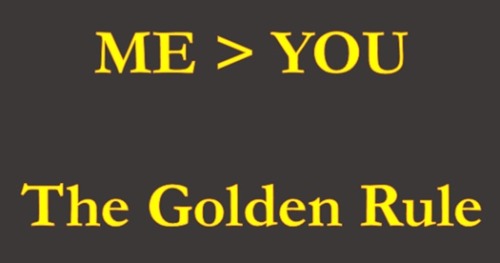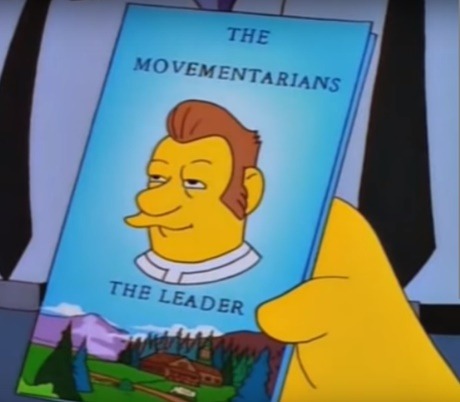
On the eve of Valentine’s Day, four romantic proverbs to keep you sane:
1) Guard Your Heart.
Proverbs 4:23:
“Above all else, guard your heart, for everything you do flows from it.”
Life isn’t a Disney movie, where following your heart always leads to a great musical number.
“Guard your heart”—letting wisdom and reason take the helm in times of uncertainty—is a best practice for life in general. When you walk into situations with eyes wide open and emotions in check, you are less susceptible to bad actors and foolish decisions.
You need not suffer through a toxic relationship yourself to appreciate this advice. The world is littered with people who’ve been damaged by matches they thought were made in heaven. History is replete with tales of misfortune that arose from carelessness. The bible itself has a few prominent examples (see: Samson, a seemingly-unstoppable force literally blinded by love.).
There’s nothing wrong with a desire for true romance; that’s natural. It’s reliance on visions of love—to the exclusion of everything else—that brings trouble.
It starts when your newest dating prospect hits the scene: You like what you see and begin imagining what the future might look like. Along with visions of creating your very own magazine-perfect coupling, you can start quieting those very-real questions of “When-are-you-going-to-get-married?”. In a bid to hold on to that dream, you silence the voice inside of you screaming that something is not quite right. Friends and family who disprove of your new beau? They’re just jealous and judgmental; they don’t know him like you do.
“Billy works hard all week. It’s fine if he drinks a beer—or ten—to take the edge off.”
Without the right safeguards, you become prematurely emotionally-involved and reason falls by the wayside.
90 Day Fiancé: A series dedicated to those who did not guard their hearts.
We want to make choices by design, not roll with the tide because it’s the path of least resistance. Objective decision-making is a tall order when you’ve already tossed the keys to your heart to someone—or something—else.
Decide what you must have from a potential partner (Religion? Level of education?) and what you will not tolerate (Is “social smoker” a real designation or just a euphemism to keep critics at bay?) before you even consider courtship.
Note that this is not a suggestion to create your own 100-point “Must Have” dating list. In lasting relationships, It doesn’t matter what color your spouse’s hair is or whether you like the same music.
But that’s another discussion for another time.
“Guard your heart” doesn’t pertain solely to affairs of the heart; It’s solid advice in all matters of daily living.
The best type of learning is education by proxy, absorbing knowledge from the experiences of others. You soak up the benefits without having to endure the pain of experimentation or sport the scars of error.
We’ll see more of that below:
2) “It IS You. Not me.”
“It’s not you, it’s me.”
Sometimes, that’s true. Most of the time, it’s not.
When someone doesn’t want to see you any more, it probably is you.
I tackled that one here. A few other common mistakes, too.
People like you for what you can give them: Companionship, pride of accomplishment, financial comfort etc. Your romantic appeal is a direct function of what you have to offer.
The sooner you realize that it just might be you, the faster you can get to becoming someone more people want to hitch their wagons to.
3) Leave Your Pen at Home.
Hallmark has cards for every occasion, so I’m sharing expressions that hit multiple bases.
This is a phrase from one of my favorite websites, LivingStingy. Run by a former patent attorney. you’ll find a range of topics there that touch all corners of life.
“Leave your pen at home” is simple, yet profound:
You can’t lose, if you don’t play.
This is not an ode to fear or a suggestion to run from opportunities because you cannot stomach risk. It’s a warning to avoid situations where you’re likely to get less than you bargained for. You can’t be snookered into signing on the dotted line if you don’t bring your pen to the table.
Before your heart (and wallet) get involved in important decisions, your brain needs to perform due diligence. Triage ruthlessly. Choices need to be made with sound mind before the magic of marketing takes hold.
You will not mortgage your future if you shut the door on opportunities to do so.
Whether it’s co-signing a loan, buying a [car/house/big-ticket item], or signing a marriage certificate; you protect your present and future by thinking ahead and keeping the end goal in mind.
Let’s walk through an example: buying a car:
95% of the legwork should be done before you even consider going to see a prospective purchase. Price range? Clean title? Carfax? The specific model/class/year you’ve settled on? All done before that new car euphoria sweeps you into trouble.
If all checks out, go see the car. If the seller isn’t shady, the paperwork is in order, and you can hammer out a good price, great.
But you’re not done there.
Before you agree to buy the car, have an independent, trustworthy mechanic examine the car.There may be hidden defects below the surface. You should be able to get a work-up of the car for $100 or so.
If an extra $100 is too big a hit to your budget, you probably can’t afford the car.
If you’re following the advice to get your homework done before the quiz is given, you shouldn’t be inspecting a dozen cars.
Even so, there are ways to mitigate your costs here. As much as you want to buy the car, the seller wants to offload it. Put a contingency in the deal stipulating that, if you agree to buy the car, the inspection fee will be folded into the purchase price.
Is the seller going to balk at $100 off the price if it leads to a sale? Probably not.
All of this seem like too much work?
You can always skip steps and hope for the best. Worst comes to worst, you can rant on the internet about the shyster who took advantage of you.
Again,a lot of times when things go awry, it is you. Take accountability and stop blaming others for preventable mistakes.
4) Stop Trying to Get Something for Nothing.
This is a corollary to #2 and a continuation of the “removing barriers to good decision-making” theme.
Good things come to those who deliver value.
The world is not a fixed pie: More [insert value you care about] for me doesn’t necessarily mean less [insert value you care about] for you. Get what you want by giving others what they want.
On the romantic front, you get the partner you’re looking for by becoming the partner they are looking for. You want a man who’s 6’3″ with an athletic build and makes six figures a year. Are you the type of woman he’d go for? If not, what are you doing to get yourself there? Are you quick with excuses to justify complacency?
“It’s who I am on the inside that counts.”
We resent people who want something for nothing. Everyone wants value.
Ever play a game of basketball or soccer with someone who only wants to shoot the ball? They never get back on defense and asking them to pass the ball is akin to insulting their mother? It’s infuriating, right?
The business world is full of these metaphorical ball hogs.
Multi-level Marketing (MLM) companies are habitual offenders. Low barriers to entry, business education, promises of an easy-to-follow program: it’s an attractive business model to the masses hunting for financial flexibility.
They skirt the government’s definition of a Ponzi scheme—and the jail time that comes with it—by offering a product of some value. And, to their credit, there actually are MLM companies that do have quality products.
Alas, their biggest money-maker remains recruiting and recruitment-related education. The more membership ranks swell, the more money there is to be had by the people calling the shots in the organization.
Before our buddy Chris Hansen was showing us what a “predator” looked like, he was asking hard-hitting questions to businessmen who purported to know the road to financial freedom:
“That’s a year at Harvard.”
Part 1: https://www.youtube.com/watch?v=S5xu6bIFSeE
Part 2: https://www.youtube.com/watch?v=oc4-34V75SQ
Eons ago, I actually spent a few months in a well-known MLM company. The recruiting process; countless diagrams that don’t quite explain how the business works; pressure to get all your friends in on the “good deal”: I’ve seen it all.
Every now and then, I run into someone who attempts to sell me on some MLM program. I spot the tells—patterns in their behavior, well-worn phrases designed to stoke curiosity—that let me know what I’m dealing with. Sometimes, I’ll even humor them by discussing their business and what they can offer me.
Maybe even show them a better way to get people listening.
Most of the time, when you point out flaws in something someone is deeply-invested in, it falls on deaf ears. Those true believers will shout you down and resent you for it.
“It’s not a pyramid. It’s a diamond.”

The leader is good! The leader is great!
Bottom line: Sustainable businesses deliver real value.
If you cannot describe what a business is in less than ten seconds, it’s probably not a real business.
Yes, you can build a business that rewards you with growing autonomy over time.
No, you cannot do it without putting a ton of (the right) work in.
Passive income is a pipe dream, a siren song that lures many well-meaning folks to ruin. Real business is not a game of Monopoly, where you can kick up your heels on Boardwalk and watch the dough roll in. Customers don’t care about your “4-Hour workweek”.

I’ll have some passive income. And a side of fries.
There are all sorts of obstacles to contend with in the market and even those who have a vested interest in helping you succeed need to be monitored.
Life isn’t a game of Three-Card Monte, where the only way to get ahead is to cheat the mark in front of you. If that’s your mentality, you’re going to squander a lot of opportunities. Play it straight and you get the added benefit of being able to sleep at night, free of fear of reprisals.
Create value and you’ll be taken care of. Stop shoving your hands into everyone else’s pockets.
Enjoy your day. And send me your comments.
